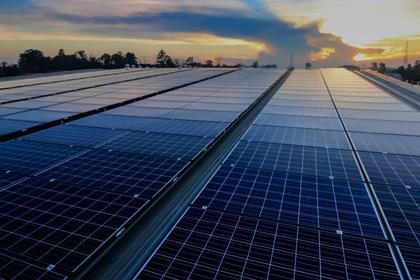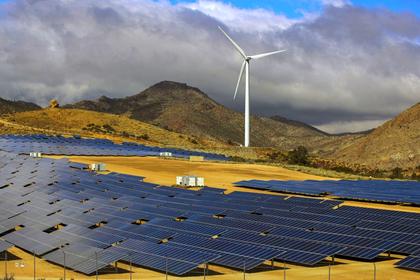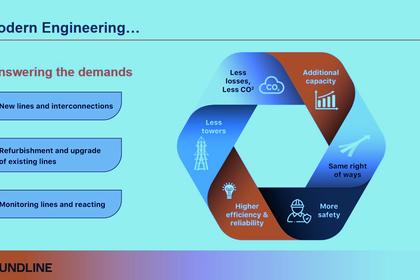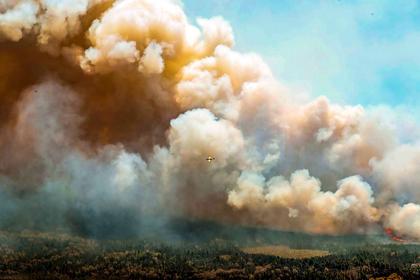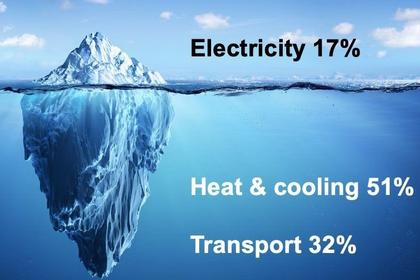
NET ZERO 2050: PUNISHMENT OF THE INNOCENT

By ED REID Vice President, Marketing (Retired) / Executive Director (Retired) /
President (Retired), Columbia Gas Distribution Companies / American Gas Cooling Center / Fire to Ice, Inc.
ENERGYCENTRAL - Jul 25, 2023 - Six Phases of a Project
- Enthusiasm
- Disillusionment
- Panic
- Search for the guilty
- Punishment of the innocent
- Praise and honors for the non-participants
This “smart joke” apparently originated in computer science in the 1970s and spread rapidly from there. It provides a humorous perspective on the history of a failing project and the fallout from its failure. It also provides a perspective from which we can analyze the current state of the “Net Zero by 2050” project.
The Net Zero Emissions by 2050 Scenario is an International Energy Agency scenario which identifies a potential path for all nations of the globe to achieve net zero annual CO2 emissions by 2050 to achieve the objectives of the Paris Accords. The almost universal agreement to the objectives of the Paris Accords by UN member nations led to great enthusiasm regarding potential future emissions reductions.
“The Net Zero Emissions by 2050 Scenario is built on the following principles:
The uptake of all the available technologies and emissions reduction options is dictated by costs, technology maturity, policy preferences, and market and country conditions.
All countries co-operate towards achieving net zero emissions worldwide. This involves all countries participating in efforts to meet the net zero goal, working together in an effective and mutually beneficial way, and recognising the different stages of economic development of countries and regions, and the importance of ensuring a just transition.
An orderly transition across the energy sector. This includes ensuring the security of fuel and electricity supplies at all times, minimising stranded assets where possible and aiming to avoid volatility in energy markets.”
Disillusionment followed enthusiasm as night follows day as the violation of the above principles developed. Issues of the cost of technologies and emissions reduction options were offset by government subsidies and incentives, technology maturity was replaced by technology forcing regulations and market and country conditions were ignored. The only unaffected component of the first principle above was policy preferences.
The all-country cooperation called for in the second principle above succumbed to economic development priorities in the developing nations and disagreements over the requirements of a just transition. China, India, Indonesia and numerous African nations prioritized economic development over net zero pursuit and chose to base much of their economic development on increased use of coal and other fossil fuels. There are also continuing concerns over development funding from the developed nations to the developing nations.
The orderly transition across the energy sector fell prey to the intermittency of renewable generation, the immaturity of the storage technologies necessary to support renewable generation during periods of low/no renewable generation, the premature closure of conventional generation capacity, the Russian war in Ukraine and the US Administration war on the fossil fuels industries. Significant volatility in the energy markets in Europe, North America, Japan and Australia has resulted.
The failure of the IEA principles has led to panic in Europe and the UK as energy supplies have decreased and energy prices have increased rapidly. Numerous European industries have shut down or reduced production as the result of energy supply shortages and rising energy prices.
The political classes in the developed nations have focused the search for the guilty on Russia, though there is plenty of guilt to go around and they will ultimately share in it.
The punishment of the innocent is focused on the citizens and industries in the developed nations exposed to rising energy prices and the possibility of major energy shortages.
So far there has been no apparent effort to provide praise and honors for the non-participants, whoever they are.
-----
This thought leadership article was originally shared with Energy Central's Energy Collective Group. The communities are a place where professionals in the power industry can share, learn and connect in a collaborative environment. Join the Energy Collective Group today and learn from others who work in the industry.
-----
Earlier:
